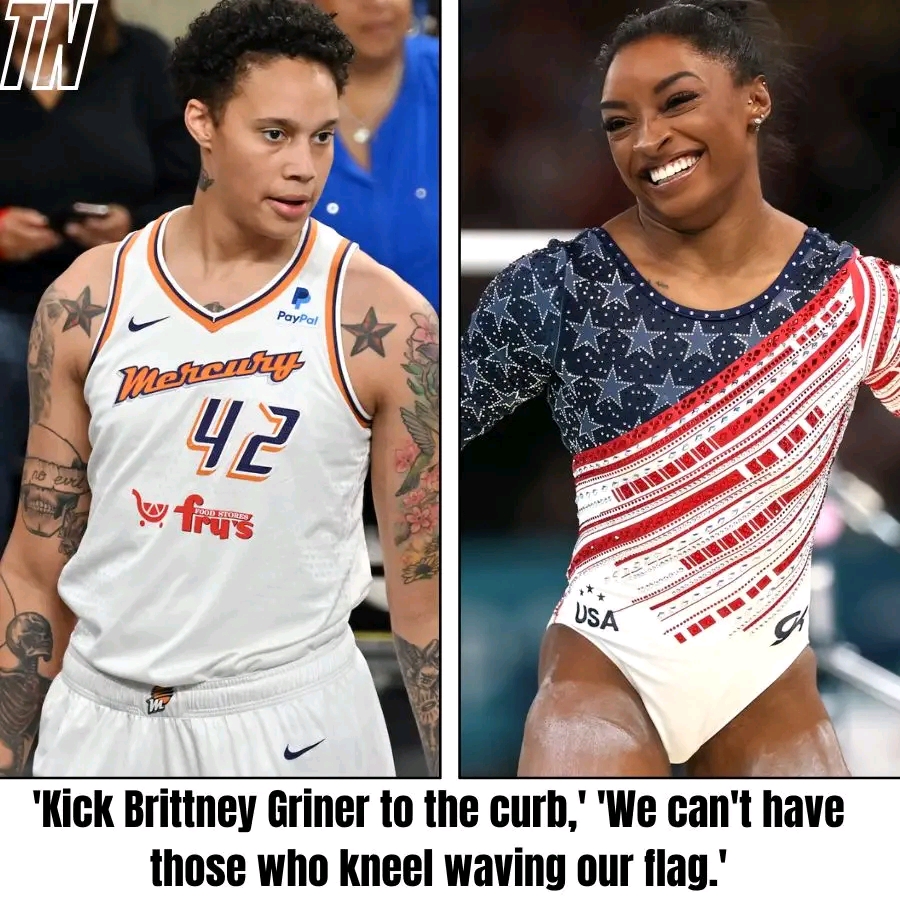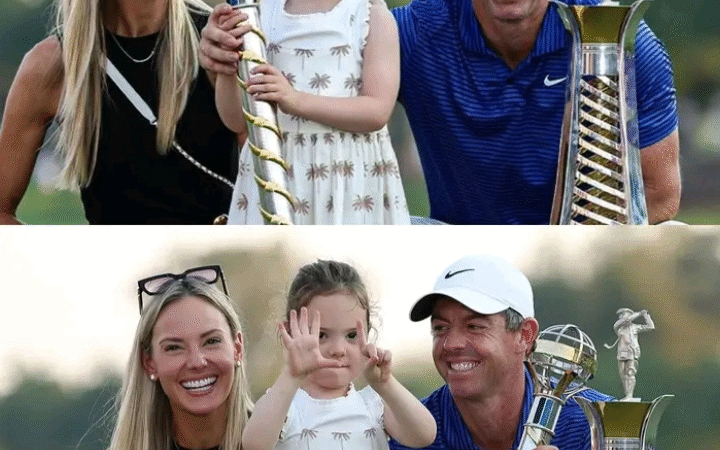Simone Biles urges the US sports delegation: ‘Kick Brittney Griner to the curb,’ ‘We can’t have those who kneel waving our flag.’

Simone Biles urges the US sports delegation: ‘Kick Brittney Griner to the curb,’ ‘We can’t have those who kneel waving our flag.’
Brittney Griner supports Simone Biles, says ‘it hit close to home’
When she heard the news that American gymnast Simone Biles was withdrawing from competition at the Tokyo Olympics, U.S. basketball player Brittney Griner empathized in a very personal way.
“I could feel where she was, and it hit close to home,” Griner said Thursday. “I felt that one deep.”
A year ago, Griner left the WNBA’s bubble in Bradenton, Florida, for what was described as personal reasons. Her Phoenix Mercury were just over halfway through their season, and she was the team’s leading scorer and rebounder at the time. She has since spoken openly about mental health being a big factor in why she had to exit during her eighth WNBA season.
“It was a very hard decision,” Griner said Thursday. “I’ve always been very vocal about it: I’ve dealt with some really bad depression, and suicidal thoughts when I was younger.
“I felt like I was hurting my team, but also felt like I was crushing [myself] on the inside. If you’re not your best self, that’s when injuries come in because you’re not all the way focused.”
A gold medalist at the Rio de Janeiro Games, Griner is now playing in her second Olympics as Team USA faces Japan on Friday (12:40 a.m. ET) in their second game of group play. She and other U.S. players such as Las Vegas’ A’ja Wilson and Seattle’s Breanna Stewart spoke Thursday about their support for Biles and understanding the challenges an elite athlete faces with mental health.
“I find it amazing when we can come together and talk and it feels safe,” Griner said. “Sometimes that’s all you need, is just to release it. And sometimes you need somebody to help you. Sometimes it takes a teammate coming to you, and I’ve had that before as well.”
After leaving the bubble, Griner said she got away from basketball to other activities she enjoyed, and also worked with a therapist.
Las Vegas’ Wilson was the WNBA’s MVP last season, winning that honor not long after her 24th birthday, and she led the Aces to the WNBA Finals. A statue of Wilson in front of South Carolina’s Colonial Life Arena was unveiled in January.
Yet Wilson wrote in a piece in The Players’ Tribune in March about feeling a sense of failure because the Aces were swept by Seattle, and then having panic attacks for the first time in her life after the season was over.
She was one of many WNBA players who acknowledged that as grateful as they were to have a season during the pandemic last year, the isolation of the bubble combined with concerns over social justice issues took an emotional toll on them. Los Angeles Sparks forward Chiney Ogwumike’s documentary “144” examined the impact of the bubble season.
“I feel like I relate to [Biles] more than I probably ever even thought of,” Wilson said of how her experiences of the past year have shaped her. “People look at us and our accolades and think, ‘Nothing could possibly be wrong; your life is perfect.’ But that’s not the case. We’re humans, and we fought through things to get to where we are.”
Stewart won her second WNBA title last season; she was WNBA Finals MVP both times. A four-time NCAA champion, she’s going for her second Olympic gold medal.
But Stewart has been open about things she has struggled with, too, including writing a 2017 piece in The Players Tribune about the sexual assault she experienced as a child.
Biles was among more than 150 gymnasts who were sexually abused by the now-imprisoned Larry Nassar, who was a team doctor for years. Stewart said processing that trauma while still competing at the highest level is a difficult balancing act.
“For Simone, there’s a lot of respect for her for what she’s been able to do for USA Gymnastics,” Stewart said. “We’re here, making sure we’re in her corner.
“Being sure you’re in a great mental state of mind isn’t the easiest thing, especially here at the Olympics. You see that everything is heightened. The pressure is heightened, the pride is heightened. Wanting to represent your country and do everything you possibly can to win is everywhere. For us as athletes, we feel that.”
Griner also said that Biles’ social media posts about being grateful for support and realizing she was appreciated as a person along with being a gymnast also hit home to her.
“I’ve dealt with scrutiny from media and people … it can be overbearing at times,” Griner said. “Finding that right support system and having the tools in place helps.
“But basketball is my life, I am basketball. So it’s hard to separate myself from that at times.”





